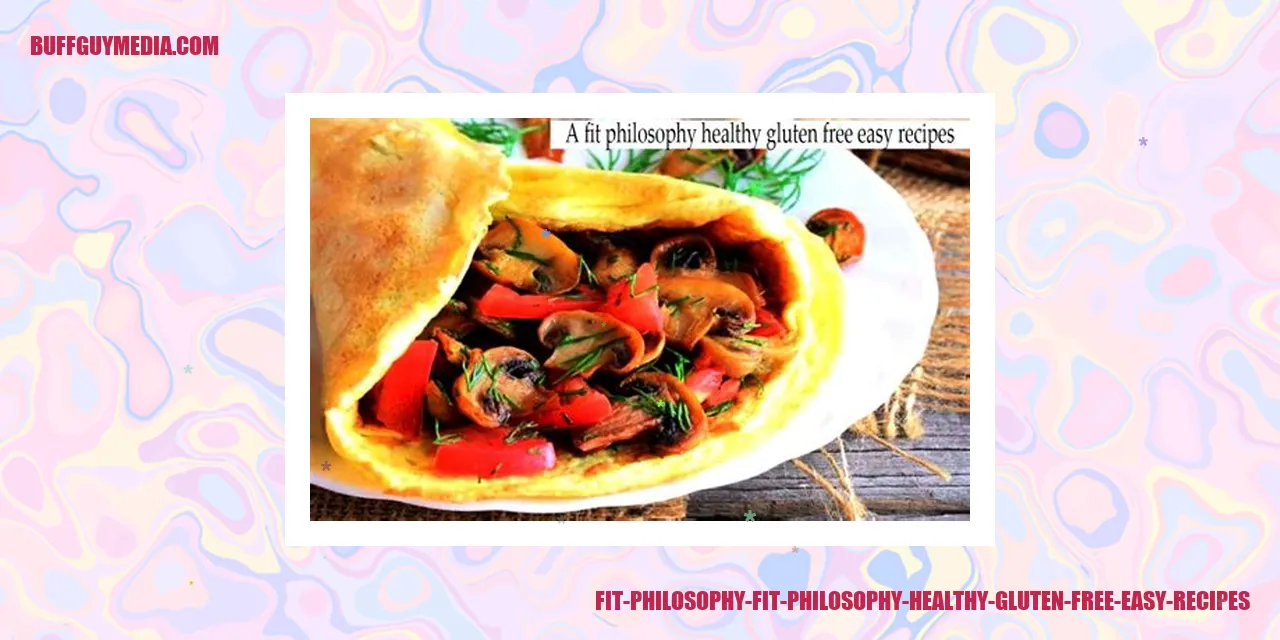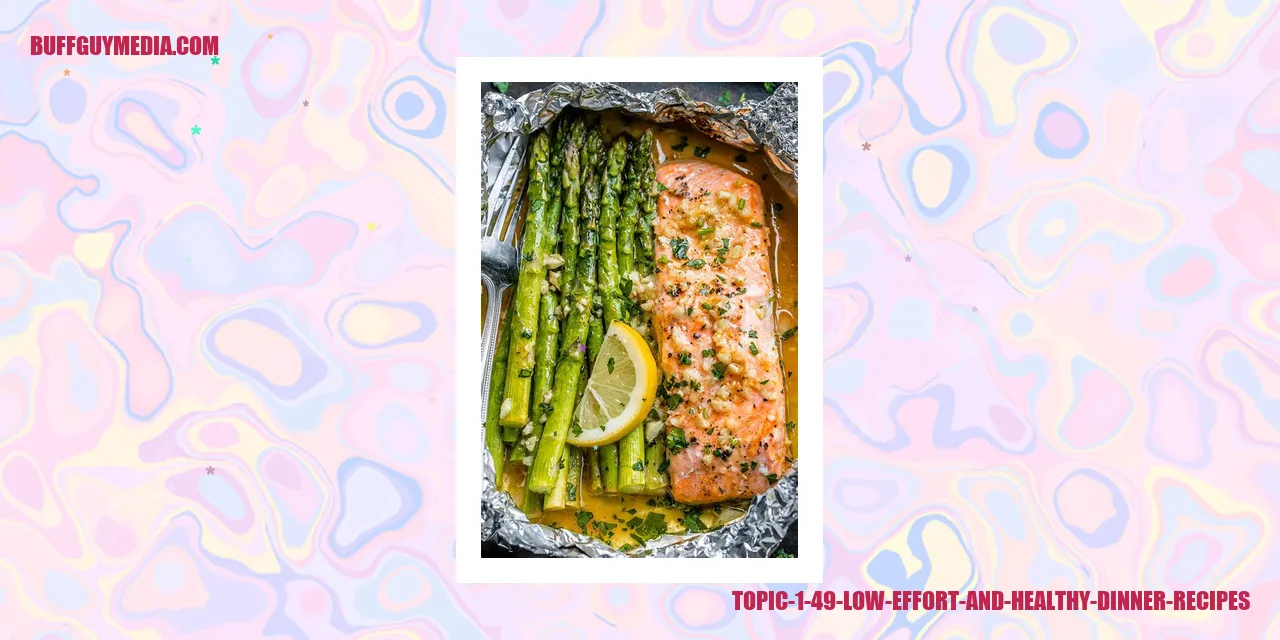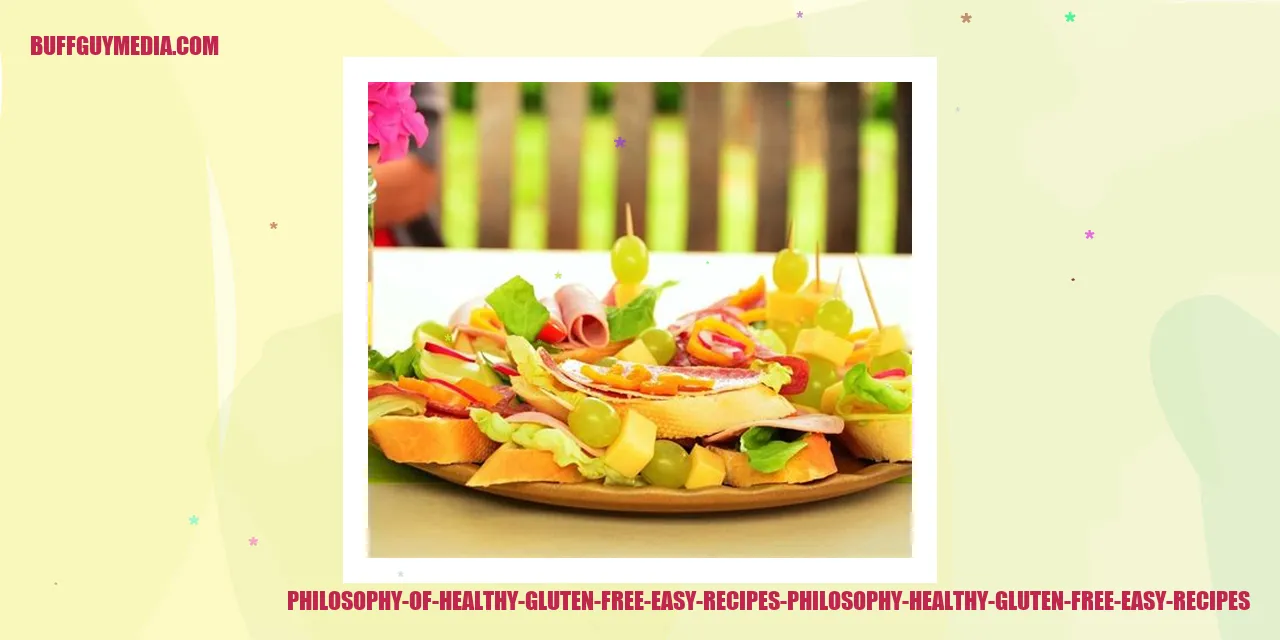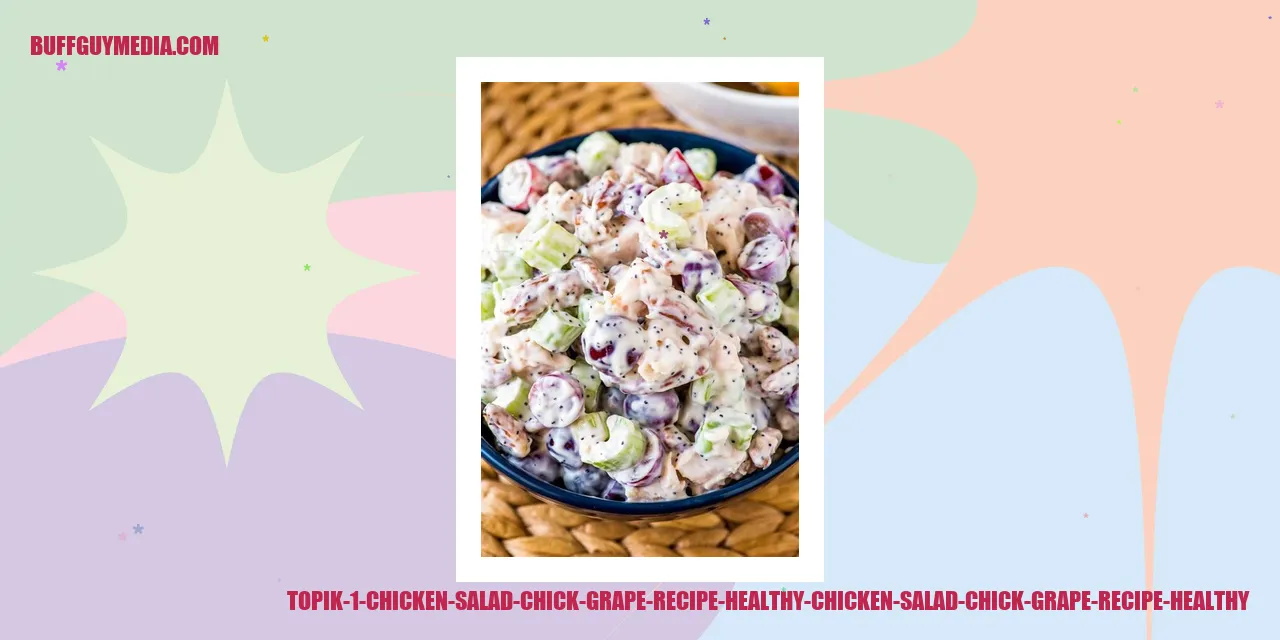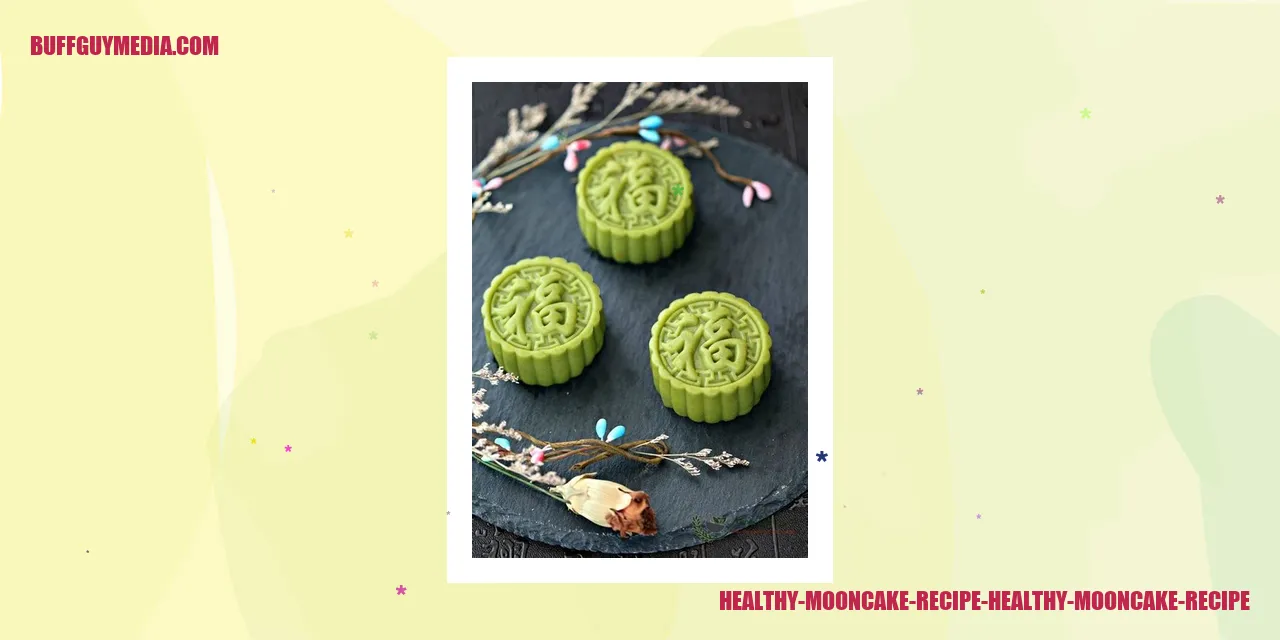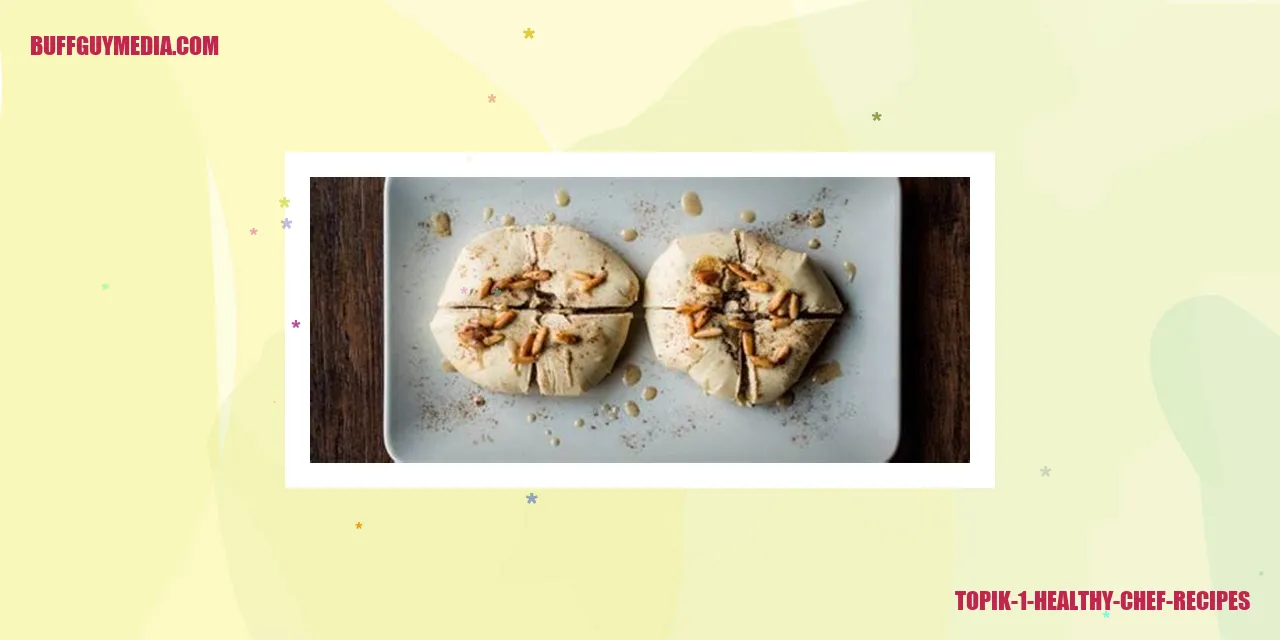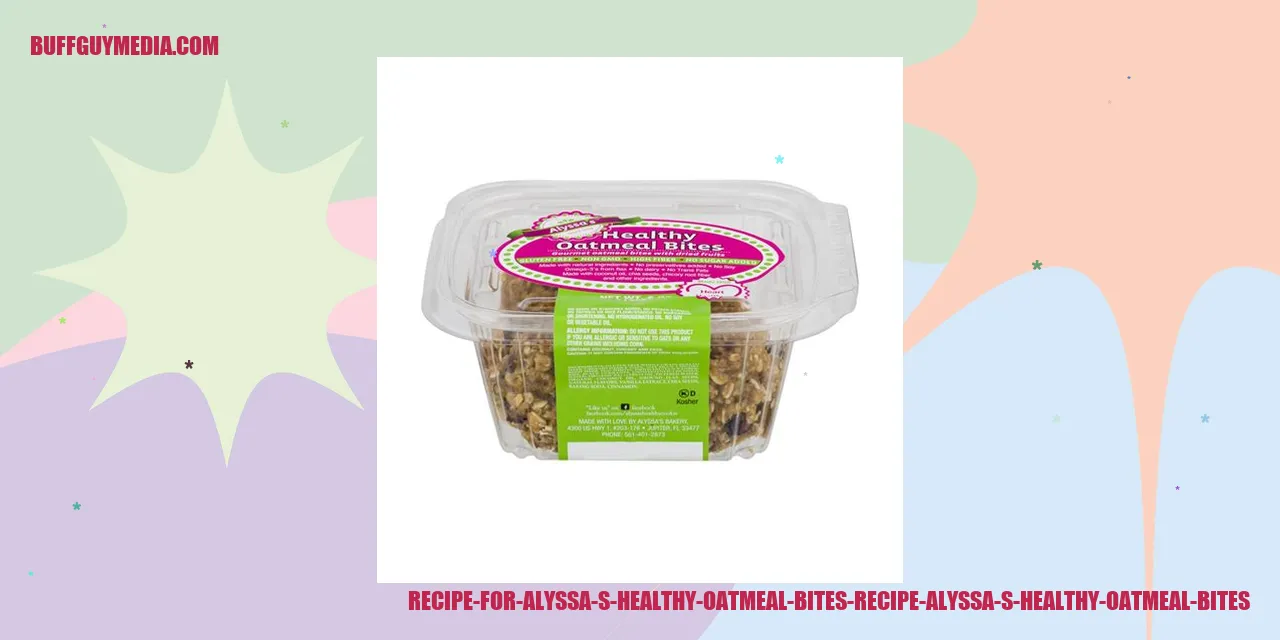Healthy Dog Food Recipes for Pitbulls
Understanding the Importance of Nutritious Diet for Pitbulls
Sub-topic 1: Significance of a Balanced Meal for Pitbulls
Proper nourishment is crucial for the overall well-being and vitality of pitbulls. These robust and energetic canines necessitate a well-rounded diet that caters to their active lifestyle and supports optimal muscle mass. A nutritious meal plays a vital role in strengthening their immune system, guarding against ailments, and fostering a longer lifespan.
Sub-topic 2: Essential Components in Pitbulls’ Food
When it comes to crafting pitbulls’ meals, it is pivotal to incorporate top-notch ingredients that fulfill their nutritional needs. This entails including a superior source of protein, such as poultry or beef, to facilitate muscle growth. Incorporating carbohydrates from sources like whole grain rice or sweet potatoes provides energy, while vegetables and fruits offer vital vitamins and minerals. Healthy fats like fish oil or flaxseed contribute to maintaining a glossy coat and promoting optimal joint health.
Sub-topic 3: Advantages of Homemade Food for Pitbulls
Homemade dog food reaps numerous benefits for pitbulls. By preparing meals at home, you have full control over the ingredients, guaranteeing a well-balanced diet without any harmful additives or preservatives. Furthermore, homemade dog food grants you the ability to cater to specific dietary needs or allergies that your pitbull may have. It also allows for the rotation of proteins and ingredients, ensuring variety and a healthy digestive system.
Sub-topic 4: Factors to Consider for Pitbulls with Special Dietary Needs
Some pitbulls may have unique dietary requirements stemming from allergies, sensitivities, or health conditions. Seeking guidance from a veterinarian or professional canine nutritionist is crucial to address these specific needs. They can provide assistance in selecting appropriate ingredients and creating a customized diet plan tailored to your pitbull’s individual needs.
Protein-Packed Recipes for Pitbulls
Sub-Topic 1: Optimal Sources of High-Quality Protein for Pitbulls
Ensuring proper nutritional intake is crucial for your Pitbull’s overall health and muscle development. Incorporating high-quality protein sources into their diet can significantly contribute to their well-being. Lean meats, including chicken, turkey, beef, and fish, are excellent protein options that also provide essential vitamins and minerals. These ingredients not only promote strong muscles but also help in maintaining a lustrous coat and healthy energy levels for your beloved Pitbull.
Sub-Topic 2: A Delectable Homemade Recipe Using Chicken
If you are inclined towards homemade dog food for your Pitbull, an easy-to-make chicken-based recipe is worth a try. Here’s a simple yet nourishing recipe:
– Ingredients:
1. Boneless, skinless chicken breasts
2. Brown rice
3. Sweet potatoes
4. Carrots
Also read:
The Advantages of Nicole Wallace’s Weight Loss
Warwick Workouts: Boost Your Fitness with Effective Exercise Routines
5. Spinach
6. Chicken broth
– Instructions:
1. Thoroughly cook the chicken breasts until they are tender and free from any pinkness.
2. Separately, prepare the brown rice according to the instructions on the package.
3. Cut the sweet potatoes, carrots, and spinach into bite-sized pieces.
4. Once the chicken is cooked, shred it into small, manageable pieces.
5. In a large pot, combine the chicken, brown rice, sweet potatoes, carrots, spinach, and chicken broth.
6. Simmer the mixture over low heat until the vegetables become tender.
7. Allow the mixture to cool before serving.
This homemade chicken-based dog food recipe ensures a balanced and protein-rich meal, offering your Pitbull the necessary nutrients, carbohydrates, and protein for their optimal growth and well-being.
Sub-Topic 3: A Flavourful Beef and Vegetable Stew Recipe
An alternative protein-rich option for your Pitbull is the delightful beef and vegetable stew. Here’s a recipe to tantalize their taste buds:
– Ingredients:
1. Lean beef stew meat
2. Potatoes
3. Carrots
4. Green beans
5. Peas
6. Beef broth
– Instructions:
1. Cut the lean beef stew meat into bite-sized pieces.
2. Peel and chop the potatoes and carrots.
3. In a large pot, combine the beef stew meat, potatoes, carrots, green beans, peas, and beef broth.
4. Cook the ingredients on low heat until the beef is cooked throughout, and the vegetables reach desired tenderness.
5. Allow the stew to cool before serving.
This beef and vegetable stew recipe not only enhances protein intake but also provides an array of essential vitamins and minerals needed for your Pitbull’s overall well-being.
Sub-Topic 4: Wholesome Fish and Sweet Potato Dog Food Recipe
Fish stands as an excellent source of lean protein and omega-3 fatty acids, offering notable benefits to your Pitbull’s health. Why not serve them a delectable fish and sweet potato dish? Here’s a recipe to tickle their taste buds:
– Ingredients:
1. White fish fillets (such as cod or tilapia)
2. Sweet potatoes
3. Broccoli
4. Peas
5. Fish broth
– Instructions:
1. Cook the white fish fillets until they are fully cooked and flake easily.
2. Peel and chop the sweet potatoes and broccoli.
3. In a big pot, combine the cooked fish, sweet potatoes, broccoli, peas, and fish broth.
4. Simmer the mixture on low heat until the sweet potatoes soften, and the vegetables are thoroughly cooked.
5. Allow the mix to cool before serving.
This fish and sweet potato dog food recipe guarantees a protein-rich meal for your Pitbull, enriched with omega-3 fatty acids to support their joint health and maintain a glossy coat.

Dive into Nourishing Grain-Free Recipes for Your Pet Pitbulls
Sub- Uncovering the Advantages of Grain-Free Diets for Your Pitbulls
In recent years, an increasing number of pet owners have turned to grain-free diets for their pitbulls. This dietary approach involves excluding grains, such as wheat, corn, and soy, from their meals. While grains can provide nutrition for some dogs, certain breeds, like pitbulls, may benefit from grain-free diets due to their unique digestive systems.
By eliminating grains, pitbulls can enjoy several advantages. Firstly, it helps reduce the risk of allergies and food sensitivities commonly associated with grains. Pitbulls experiencing skin irritations, itching, or digestive issues may find relief through a grain-free diet.
Additionally, grain-free dog food recipes often incorporate alternative carbohydrate sources like sweet potatoes or peas, which offer essential nutrients while being easier for pitbulls to digest. These recipes may also possess higher protein content, which complements the muscular build of pitbulls and supports their energy levels.
Sub- Crafting a Homemade Recipe of Turkey and Pumpkin for Your Pitbulls
If you’d like to prepare a homemade grain-free meal for your beloved pitbull, a recipe combining turkey and pumpkin could be a nutritious choice. This recipe not only avoids grains but also incorporates whole foods that provide numerous health benefits.
To create this homemade feast, begin by cooking ground turkey meat thoroughly. Once cooked, combine it with cooked and mashed pumpkin. Pumpkins are a fantastic source of fiber, aiding in promoting healthy digestion for your pitbull.
You can also add some leafy greens such as spinach or broccoli to enhance the nutritional value of the meal. These vegetables provide essential vitamins and minerals to support your pitbull’s overall well-being.
Sub- Lamb and Brown Rice Recipe – Grain-Free Alternative for Your Pitbulls
For dog owners seeking a grain-free meal option that incorporates alternative carbohydrates, a lamb and brown rice recipe can be a suitable choice for their pitbulls. Although this recipe includes brown rice, it excludes grains like wheat and corn.
Begin by cooking lamb meat until it is well done. Combine the cooked lamb with cooked brown rice, a complex carbohydrate that provides sustained energy for active pitbulls. Additionally, brown rice is also a good source of dietary fiber, aiding in digestion.
To further enhance the nutritional profile of this recipe, consider adding some lightly steamed vegetables such as carrots and green beans. These vegetables provide essential vitamins and minerals to support your pitbull’s overall health.
Sub- Quinoa and Vegetable Recipe – A Wholesome Grain-Free Meal for Your Pitbulls
Quinoa is another nutritious alternative to grains that can be incorporated into homemade grain-free meals for your pitbull. This recipe combines quinoa with a variety of vegetables to create a balanced and wholesome meal for your furry friend.
Begin by cooking quinoa according to the package instructions. Once cooked, mix it with lightly steamed vegetables like zucchini, bell peppers, and kale. The addition of these vegetables ensures that your pitbull receives a range of essential nutrients.
You can also include lean protein sources, such as boiled chicken or turkey, in this recipe to provide the necessary amino acids for muscle maintenance and growth in your pitbull.
These grain-free recipes serve as an excellent starting point to provide your pitbull with a nutritious and balanced diet. However, it is essential to consult with your veterinarian to address your pitbull’s specific dietary needs and health concerns.

Understanding the Raw Food Diet for Pitbulls
Sub-Topic 1: Advantages and Disadvantages of a Raw Food Diet for Pitbulls
The raw food diet for Pitbulls, often referred to as the BARF diet (Biologically Appropriate Raw Food), is gaining popularity among dog owners who are seeking a more natural and balanced approach to feeding their pets. This diet involves feeding dogs a range of raw meats, bones, fruits, and vegetables, excluding any processed ingredients. Like any other dietary approach, it comes with both advantages and disadvantages.
One of the primary benefits of a raw food diet for Pitbulls is its resemblance to their wild diet. Advocates argue that this promotes better digestion, enhanced dental health, and a lustrous coat. Additionally, commercial dog food often contains fillers, preservatives, and artificial additives, which are absent in raw food.
However, there are also potential downsides to consider. Raw food diets require careful planning and preparation to ensure optimal nutrition, as Pitbulls require specific ratios of protein, fat, and carbohydrates. Furthermore, there is a risk of bacterial contamination if proper food handling techniques are not followed. Transitioning a Pitbull to a raw food diet can also be challenging and may initially cause digestive disturbances.
Sub-Topic 2: Simple Homemade Recipe for Raw Food Diet for Pitbulls
If you decide to switch your Pitbull to a raw food diet, it is important to provide a well-balanced homemade recipe. Here is a straightforward recipe to help you begin:
– 2 pounds of raw meat (you can use a combination of chicken, beef, or lamb)
– 1 cup of finely diced vegetables (carrots, broccoli, and spinach)
– 1/4 cup of fish oil or flaxseed oil
– 1 teaspoon of calcium supplement (consult your veterinarian for the appropriate dosage)
Thoroughly mix all the ingredients and divide the mixture into meal-sized portions. Store them in airtight containers in the freezer and thaw before feeding. Regularly monitor your Pitbull’s weight and adjust portion sizes accordingly.
Sub-Topic 3: A Balanced Recipe for Raw Meat and Vegetable Dog Food
For a more balanced raw meat and vegetable dog food recipe, consider the following proportions:
– 60% raw meat (such as chicken breast or beef sirloin)
– 10% raw edible bones (chicken wings or beef marrow bones)
– 15% organ meats (like liver or kidney)
– 15% fresh fruits and vegetables (such as carrots, apples, or green beans)
Maintaining this balance is crucial to provide adequate nutrition for your Pitbull. It is advisable to consult a veterinary nutritionist or your veterinarian to ensure that you meet your dog’s specific nutritional requirements.
Sub-Topic 4: Precautions for Feeding Raw Food to Pitbulls
Feeding raw food to Pitbulls requires certain precautions to ensure the health and safety of your beloved companion:
1. Keep raw meat and vegetables separate from other foods to prevent cross-contamination.
2. Follow strict hygiene practices when handling raw food, such as thoroughly washing hands and utensils.
3. Purchase meat from reputable sources to minimize the risk of bacterial contamination.
4. Regularly clean and sanitize your Pitbull’s food bowls to prevent the buildup of bacteria.
5. Monitor your Pitbull’s health closely and consult your veterinarian for guidance and advice.
By undertaking these precautions, you can minimize potential risks associated with a raw food diet and offer your Pitbull the benefits of a more natural and balanced way of eating.

Topic 5: Nourishing Recipes for Pitbull Puppies
Sub-Topic 1: Essential Nutrients for Pitbull Puppies
Pitbull puppies have specific dietary requirements that contribute to their growth and development. To ensure their well-being, it is crucial to provide them with a well-rounded diet containing high-quality proteins, wholesome fats, and vital vitamins and minerals. Protein is particularly important for building their muscles and promoting overall strength. Additionally, fats serve as a valuable energy source, while vitamins and minerals support their immune system and bone health.
Sub-Topic 2: Homemade Puppy Food Recipe Featuring Chicken and Rice
An excellent homemade food recipe for pitbull puppies involves the use of chicken and rice. Begin by boiling boneless chicken breasts until fully cooked, then proceed to shred the meat and set it aside. Cook brown rice separately, following the instructions provided. Once the rice is cooked, combine it with the shredded chicken, ensuring a well-balanced mix of both ingredients. This recipe provides an optimal combination of protein derived from chicken and carbohydrates sourced from rice, fostering healthy growth in your pitbull puppy.
Sub-Topic 3: Turkey and Sweet Potato Puppy Food Recipe
If you desire an alternative to chicken, consider preparing a puppy food recipe featuring turkey and sweet potato. Start by cooking ground turkey until thoroughly done, and then set it aside. Simultaneously, boil sweet potatoes until tender, after which you smash them into a smooth consistency. Blend the mashed sweet potatoes with the cooked ground turkey, ensuring an equal distribution of both components. This recipe offers lean protein from the turkey, along with essential vitamins and dietary fiber from the sweet potato, supporting a balanced diet for pitbull puppies.
Sub-Topic 4: Gradually Transitioning Pitbull Puppies to Adult Dog Food
As pitbull puppies mature, a gradual transition from puppy food to adult dog food is crucial. Begin by gradually mixing small portions of adult dog food with their current puppy food. Over a few weeks, progressively increase the proportion of adult food while reducing the amount of puppy food. This gradual transition allows your pitbull puppy’s digestive system to adapt to the new food without causing any digestive issues. Remember to consult your veterinarian for guidance on the ideal timing and process for transitioning your pitbull puppy to adult dog food.
Elderly Pitbulls and Special Dietary Considerations
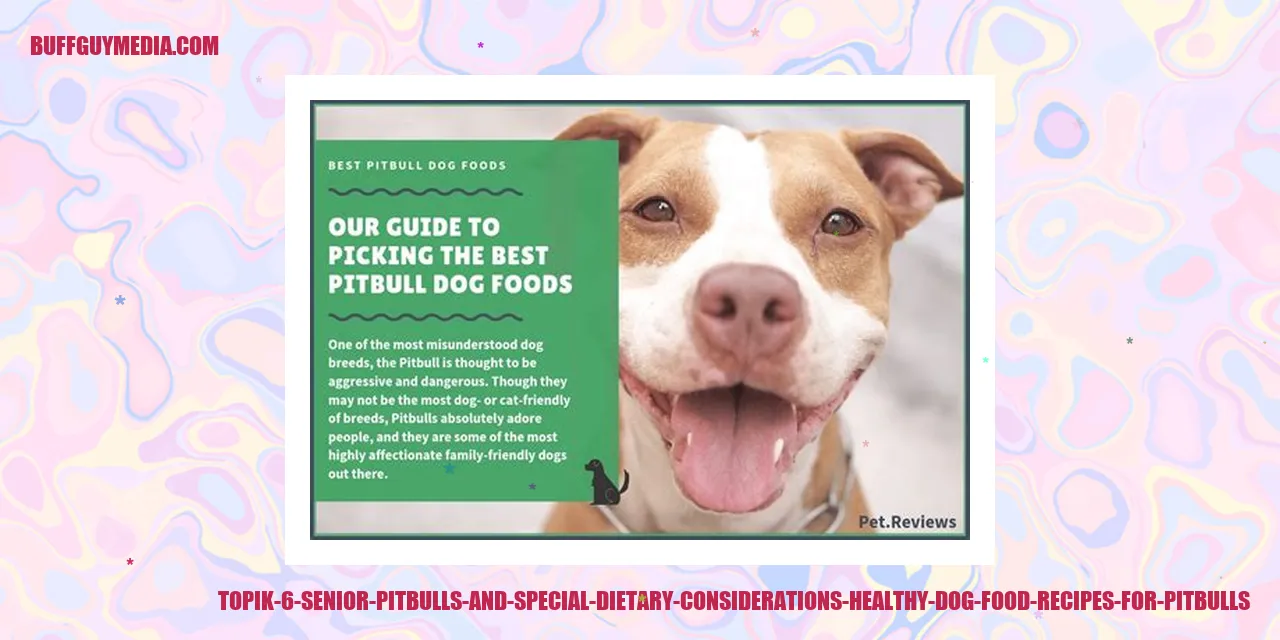
Sub-topic 1: Nutritional Requirements of Aging Pitbulls
As pitbulls age, their nutritional needs undergo changes. Senior pitbulls necessitate a diet that caters to their aging bodies and aids in maintaining optimal health. Some significant factors to consider when it comes to their diet are:
– Protein: Older pitbulls generally necessitate less protein in their diet than younger dogs. Nonetheless, incorporating high-quality protein sources like lean meats, fish, and eggs is still crucial for preserving muscle mass and overall well-being.
– Fats: Healthy fats such as omega-3 fatty acids can aid in supporting joint health and reducing inflammation in aging pitbulls. Including sources like fish oil or flaxseed oil in their diet can prove to be beneficial.
– Fiber: Senior pitbulls may experience digestive issues or a slower metabolism. Including fiber-rich ingredients like sweet potatoes, pumpkin, or brown rice can facilitate digestion and fend off constipation.
Sub-topic 2: Homemade Recipe for Senior Pitbulls with Chicken and Vegetables
Crafting homemade dog food can be an excellent option for senior pitbulls as it grants you control over the ingredients and ensures they receive a well-balanced diet. Here’s a simple recipe that you can prepare for your senior pitbull:
– Ingredients:
1. Boneless and skinless chicken breast
2. Assorted vegetables (carrots, peas, green beans)
3. Brown rice
4. Fish oil supplement
– Instructions:
1. Thoroughly cook the chicken breast and shred it into small pieces.
2. Cook the mixed vegetables until tender.
3. Cook the brown rice following the package instructions.
4. Combine the shredded chicken, cooked vegetables, and cooked brown rice.
5. Gently drizzle a small amount of fish oil supplement onto the mixture.
6. Allow the food to cool before serving it to your senior pitbull.
Sub-topic 3: Fish and Brown Rice Recipe for Aging Pitbulls
An alternative homemade recipe for senior pitbulls can involve using fish and brown rice:
– Ingredients:
1. Fresh fish fillets (salmon, cod, or tilapia)
2. Brown rice
3. Spinach or other leafy greens
4. Olive oil
– Instructions:
1. Grill or bake the fish fillets until they are fully cooked and can be easily flaked with a fork.
2. Follow the package instructions to cook the brown rice.
3. Steam the spinach or other leafy greens until they wilt.
4. Combine the flaked fish, cooked brown rice, and steamed greens.
5. Lightly drizzle a small amount of olive oil over the mixture.
6. Allow the food to cool before feeding it to your senior pitbull.
Sub-topic 4: Joint Health Supplements for Aging Pitbulls
Joint health plays a vital role for aging pitbulls as they may develop arthritis or other joint-related issues. Incorporating supplements into their diet can assist in alleviating pain and promoting healthy joints. Some beneficial supplements for aging pitbulls include:
– Glucosamine: This supplement supports cartilage health and can reduce joint inflammation.
– Chondroitin: Chondroitin works in conjunction with glucosamine to enhance joint structure, improve mobility, and minimize pain.
– Omega-3 fatty acids: Fish oil supplements or other sources of omega-3 can help reduce joint inflammation and improve overall joint health.
Remember to consult your veterinarian before introducing any supplements into your senior pitbull’s diet to ensure they are suitable for their specific needs and health condition.

Variety in Diets for Pitbulls: Exploring Vegetarian and Vegan Dog Food Recipes
Sub-Topic 1: Unleashing the Potential of Plant-Based Diets for Pitbulls
The question of whether pitbulls can thrive on plant-based diets has sparked significant debate. Dogs are traditionally classified as omnivores, able to consume both meat and plant-based foods, leading to inquiries about the potential feasibility of raising a pitbull on a vegetarian or vegan diet.
Proponents of plant-based diets for dogs argue that, with thorough planning and nutritional supplementation, pitbulls can indeed flourish on vegetarian or vegan diets. Nevertheless, it remains vital to consult an experienced veterinarian specializing in plant-based nutrition to ensure your pitbull’s dietary needs are adequately addressed.
Sub-Topic 2: Crafting Homemade Vegetarian Delights for Your Pitbull
For those opting for a vegetarian approach, a plethora of homemade dog food recipes offers a delectable alternative. One particular recipe blends protein-rich ingredients such as lentils, quinoa, and sweet potatoes to satisfy your pitbull’s nutritional requirements.
Methodically cook the lentils and quinoa separately, then blend them with mashed sweet potatoes. Consider incorporating other dog-friendly vegetables, such as peas and carrots, for a nutritional boost. However, remember to consult with a veterinarian to ensure that the recipe optimally caters to your pitbull’s specific dietary needs.
Sub-Topic 3: Nourishing Your Pitbull with Vegan Culinary Delights
Embracing a vegan diet for your pitbull can be achieved through an enticing recipe bursting with beans and vegetables. Combining cooked beans, such as black beans or chickpeas, with an assortment of nutrient-rich vegetables like spinach, broccoli, and carrots can sufficiently provide the necessary nutrients.
Decide whether to blend the beans and vegetables into a smooth consistency or retain a slight chunkiness, depending on your pitbull’s preference. Remember to gradually introduce new ingredients while closely monitoring your dog’s response to ensure that the vegan food supports optimal nutrition.
Sub-Topic 4: Achieving Nutritional Harmony in Vegetarian Diets for Pitbulls
Maintaining a balanced nutritional intake is essential when feeding pitbulls a vegetarian or vegan diet. While plant-based diets can deliver a multitude of vital nutrients, certain elements like vitamin D, vitamin B12, and essential fatty acids may be less abundant in plant-based foods.
Supplementation may be necessary to fulfill these nutritional requirements, so consult a veterinarian experienced in vegetarian or vegan dog nutrition. Regular check-ups and blood tests can help monitor and modify the diet as needed, ensuring your pitbull’s overall health and well-being.

A Guide to Allergy-Friendly Dog Food Recipes for Pitbulls
Sub-topic 1: Recognizing Common Food Allergies in Pitbulls
Just like humans, our furry friends, especially the active and lively Pitbulls, can also develop food allergies. Ensuring a well-balanced and suitable diet is crucial for their overall health and well-being. Identifying and understanding the common food allergies prevalent in Pitbulls is therefore essential.
Pitbulls commonly exhibit allergies to chicken, beef, dairy products, wheat, soy, and corn. It is important to keep an eye out for symptoms such as skin irritations, excessive itching, digestive issues, or recurring ear infections, as these may indicate a possible food allergy.
Sub-topic 2: Wholesome Homemade Limited Ingredient Diet for Pitbulls
A limited ingredient diet (LID) can greatly benefit Pitbulls suffering from food allergies. By eliminating potential allergens and providing a simple yet nutritious meal, you can help alleviate their discomfort and foster better health.
Here is an easy homemade limited ingredient diet recipe that your Pitbull will enjoy:
- Lean ground turkey or venison
- White rice or sweet potato
- Carrots
- Peas
- Pumpkin puree
Cook the ground turkey or venison thoroughly and steam the carrots and peas. Combine all the ingredients and serve the meal to your Pitbull. Monitor their progress and consult with your veterinarian if any adjustments need to be made.
Sub-topic 3: Nourishing Salmon and Sweet Potato Recipe for Pitbulls with Allergies
Salmon and sweet potato offer excellent nutrition for Pitbulls while being hypoallergenic and gentle on their digestive systems. This recipe is packed with essential nutrients and can help alleviate allergies.
Here is a recipe for salmon and sweet potato dog food:
- Salmon fillets
- Sweet potatoes
- Spinach
- Olive oil
- Fish oil (optional)
Bake the salmon fillets and sweet potatoes until thoroughly cooked. Mash the sweet potatoes and mix them with the cooked salmon and spinach. Add a drizzle of olive oil and fish oil for additional health benefits, if desired. Serve this delicious and allergy-friendly recipe to your Pitbull.
Sub-topic 4: Incorporating Novel Protein Sources into Allergy-friendly Homemade Dog Food for Pitbulls
In cases where Pitbulls have severe allergies or do not respond well to common protein sources, incorporating novel protein sources into homemade dog food can be beneficial. Novel proteins are relatively new to a dog’s diet and are less likely to cause allergic reactions.
Some examples of novel proteins suitable for Pitbulls include bison, venison, rabbit, or duck. When preparing homemade dog food using novel protein sources, it is essential to ensure thorough cooking and balance the meal with appropriate vegetables and grains.
For guidance on incorporating novel protein sources into your Pitbull’s allergy-friendly diet, consult with a veterinarian or professional canine nutritionist.

Topic 9: Common Queries Regarding Nutritious Homemade Dog Food Recipes for Pitbulls
Sub-topic 1: How much homemade dog food should be given to a Pitbull?
Providing the right quantity of homemade dog food is vital for the optimal health and overall well-being of Pitbulls. The recommended serving size for Pitbulls depends on their weight and activity level. As a general guideline, a Pitbull weighing approximately 50 pounds should consume around 2 to 3 cups of homemade dog food daily. However, it is crucial to consult your veterinarian to determine the precise portion suitable for your Pitbull, considering their individual requirements and any underlying medical conditions they may have.
Sub-topic 2: Is it possible to substitute ingredients in dog food recipes?
Indeed, ingredients can be substituted in dog food recipes, but it is essential to make informed choices. Certain ingredients, such as onions, garlic, chocolate, grapes, or raisins, can be toxic to dogs and should never be included. When swapping ingredients, ensure that the alternatives are safe for dogs and still provide the necessary nutritional value. It is advisable to seek advice from a veterinarian or professional canine nutritionist before making significant modifications to your dog’s diet.
Sub-topic 3: Are there any ingredients that Pitbulls should avoid consuming?
Although Pitbulls can consume various foods, certain ingredients should be avoided. Some foods that can be harmful to Pitbulls include chocolate, caffeine, grapes, raisins, onions, garlic, avocados, and artificial sweeteners like xylitol. These ingredients can be toxic and have detrimental effects on a Pitbull’s health. To ensure your Pitbull’s well-being, it is best to stick with safe and dog-friendly ingredients when preparing homemade dog food.
Sub-topic 4: How can homemade dog food for Pitbulls be stored properly?
Proper storage of homemade dog food is crucial for maintaining its freshness and preventing bacterial contamination. The following guidelines should be followed when storing homemade dog food for Pitbulls:
- Allow the cooked dog food to cool completely before storage.
- Divide the dog food into individual portions based on your Pitbull’s daily serving size.
- Store each portion in airtight containers or freezer-safe bags.
- If refrigerating, utilize the homemade dog food within 2-3 days.
- If freezing, label the containers with the date and use the dog food within 2-3 months.
- Thaw frozen dog food in the refrigerator or by using the defrost setting on your microwave.
By adhering to these storage guidelines, you can guarantee that your homemade dog food remains safe and fresh for your Pitbull’s enjoyment.

